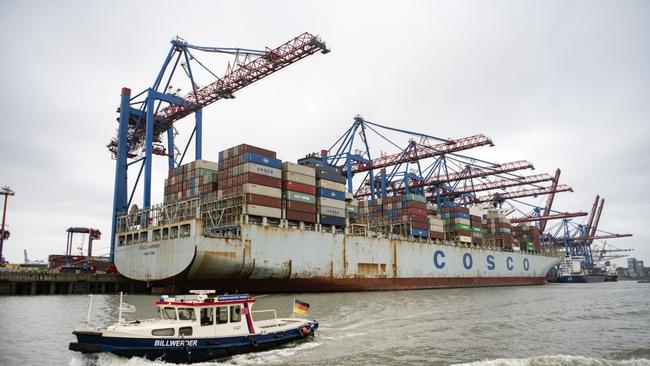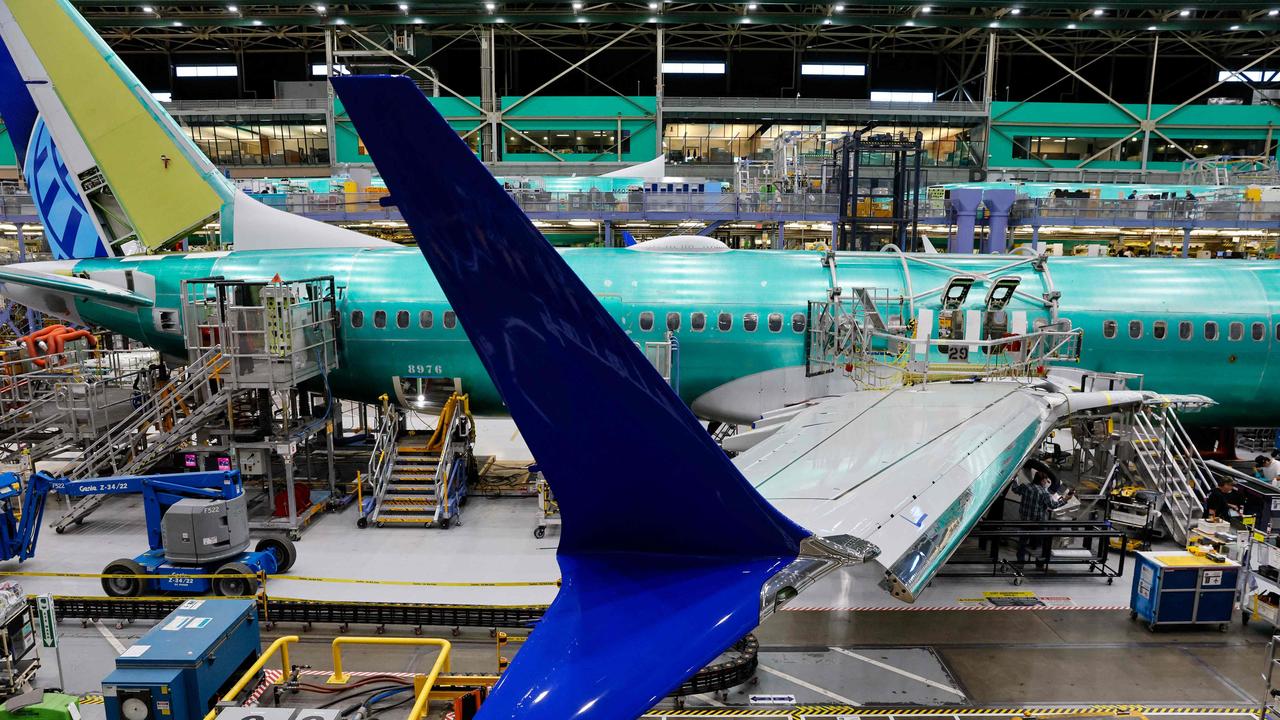Not travelling well: fears rise as China gets a stranglehold on cargo data
China’s expanding grip on data about the world’s cargo flows is sparking concern that Beijing could exploit its logistics information for commercial or strategic advantage.

China’s expanding grip on data about the world’s cargo flows is sparking concern in Washington and among industry officials that Beijing could exploit its logistics information for commercial or strategic advantage.
Even cargo that never touches Chinese shores often still passes through Beijing’s globe-spanning logistics networks, including sophisticated data systems that track shipments transiting ports located far from China.
Control over the flow of goods and information about them gives Beijing privileged insight into world commerce and potentially the means to influence it, say cargo industry officials.
With ports clogged globally and shortages plaguing many industries, shipping data has become an enormously valuable commodity.
Foremost among China’s cargo-data systems is Logink, a digital network that links shippers internationally and describes itself as a “one-stop logistics information service platform”. Logink says it draws on a mix of public databases and information input by more than 450,000 users in China and at dozens of giant ports worldwide, including across the Belt and Road initiative, China’s trillion-dollar international infrastructure project.
Logink’s international reach highlights a field critical to the world economy where the West lags behind China. Digitisation of cargo data has been a dream of shippers for years.
Developed since 2007, not-for-profit Logink is overseen by China’s Ministry of Transportation. Its growing links to overseas ports and logistics networks are starting to draw attention in Washington.
Logink’s window into global trade “could give the data holder a treasure trove of intelligence of national security and economic interest”, said Michael Wessel, a commissioner on congress’s US-China Economic and Security Review Commission, which last week launched a study of the system.
“It should be a much higher concern than it has been,” Mr Wessel said.
The Defence Department sends military equipment via commercial ports worldwide. A spokesman for its logistics arm, Transportation Command, said that through Belt and Road, “China is seeking to enhance its visibility into the global supply chain, including US military logistics”.
Officially called the National Public Information Platform for Transportation and Logistics, Logink grew for years inside China, benefiting from the economy’s scale and aggregating cargo data from shipping, trucking and manufacturing companies. In 2010 Logink began to form partnerships with ports around Asia, promising faster trade flows. More recently it has linked with Belt and Road ports and cargo-data systems in Europe and the Middle East.
Logink’s ability to share information internationally “serves the ‘One Belt One Road’ national strategy”, according to its website, “and has become a ‘Chinese window’ for China to integrate international logistics information exchange and sharing”.
China is expanding its window into world cargo flows as global access to ship-location information in Chinese waters has declined because of a new data-privacy law that took effect in November.
Concerns about Logink are similar to those around telecoms companies Huawei and ZTE. They all carry other parties’ data that Chinese authorities could exploit. By crunching data crossing Logink, China could spot and exploit shortages, gluts and trends before others do, say industry officials.
“The most obvious risk of Logink is that it can help Chinese companies grow faster because of its data insights,” said Mees van der Wiel, a business consultant at Portbase, the digital data network of the Port of Rotterdam, Europe’s largest port.
Chinese state-owned shipping company Cosco in 2018 announced a digital system similar to Logink for Greece, including the giant Port of Piraeus outside Athens, which Cosco controls. Greek maritime business leaders feared the system would give China sensitive information about their commercial operations and even on the Greek navy. The Greek government last January passed a law requiring any such system and the data it collects be controlled only by the state.
Globally, the logistics industry remains heavily reliant on physical documentation, with shippers routinely sending paperwork about sea cargo to its destination by air. An international shipment can pass through more than 40 different entities – including freight handlers, customs agents and port operators – each using different information systems.
To integrate and streamline this, many projects are afoot aiming to make shipping more efficient and less polluting by collecting and sharing information about the location, routes and contents of ships and millions of shipping containers moving daily.
Most of those efforts are led by ports, private companies and industry alliances. Many struggle to enlist participants because the logistics industry is fiercely competitive, prompting companies to jealously guard data that they fear could hand rivals an edge. At a recent conference on “smart maritime networks” in Copenhagen, successive speakers lamented the industry’s failure to gain efficiency by sharing data.
“In logistics today, the flow of information is as important as the flow of money or goods,” said Inna Kuznetsova, a logistics expert and chief executive of data-analytics company 1010Data in New York.
China, in aggregating so much information and easing communication across supply chains, has shown what is possible in digitising logistics. “Logink is a masterpiece in technical innovation and would be the envy of other platforms,” said Andre Wheeler, a former logistics executive based in Perth.



To join the conversation, please log in. Don't have an account? Register
Join the conversation, you are commenting as Logout